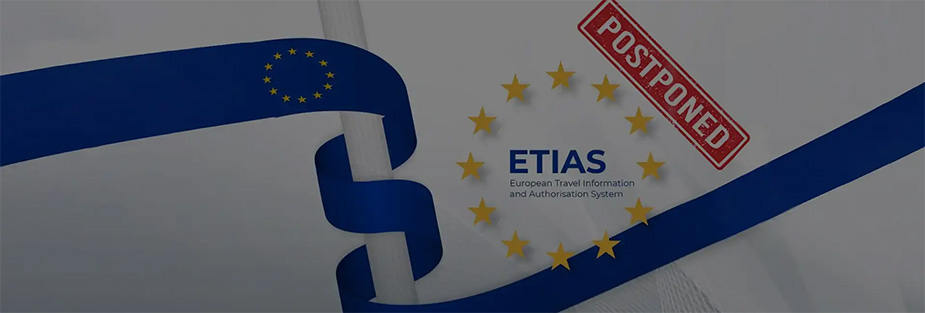
A Delay in ETIAS Implementation Once Again is Announced by the EU
Those nationals of countries permitted to travel without a visa to Schengen countries will no longer be required to register for travel until 2024.
For travellers to Europe who hold a passport of a country that does not require a visa to enter a Schengen country, the European Travel Information and Authorization System (ETIAS) is a new travel registration system. It was originally scheduled to go into effect in 2021, but has been delayed several times, the most recent being November 2023.
According to the FAQs on the ETIAS website, the implementation date will be 2024. In addition, the EU has delayed the implementation date of the Entry/Exit System (EES) until late 2023, but no specific date was given within 2024. It is expected that the EU’s Travel Information and Authorisation System (ETIAS) will be operational in 2024. Upon entering or exiting an EU or Schengen Area border, the EES will automatically collect certain information on foreign visa-required and visa-exempt travellers.
The system will require U.S. and other travellers to Europe who don’t need a visa to visit Schengen countries to get approval first. In order to apply, applicants must provide their personal background information, a credit card to pay the €7 fee, and an email address to receive a response. Providing approval within minutes is expected if there are no issues with the application or background of the applicant.
The registration is valid for five years after it has been approved. The Schengen zone currently allows travellers to spend 90 days in a 180-day period. Within that period, a traveller may enter and leave the zone as often as he or she likes. A Schengen visa is required for travellers staying longer than 180 days in the Schengen area. Travelers whose applications are denied can appeal.
Citizens of approximately 60 countries and territories, including the United States, do not require a visa to enter Schengen zone countries, but will be required to obtain ETIAS approval. The ETIAS website contains a complete list.
ETIAS’ establishment will have a direct, but likely minimal impact on workforce mobility. For most business travellers, registering is a formality. In addition to not changing the need for transferees to obtain a work visa, ETIAS does not require them to register, since it applies only to people who are not required to obtain a visa. Business travellers who fail to register will face significant consequences, as they will be denied transportation to Schengen countries or turned away at the border.
You May Also Like
Plan Stress-free Move with Top Moving Company in UAE - ISS Relocations

Moving Company - Recent Blog
Stay informed and prepared for your next move with our latest blogs on moving services in the UAE. From expert packing tips to international relocation guides, ISS Relocations brings you up-to-date insights to make your moving experience smoother, safer, and stress-free.










